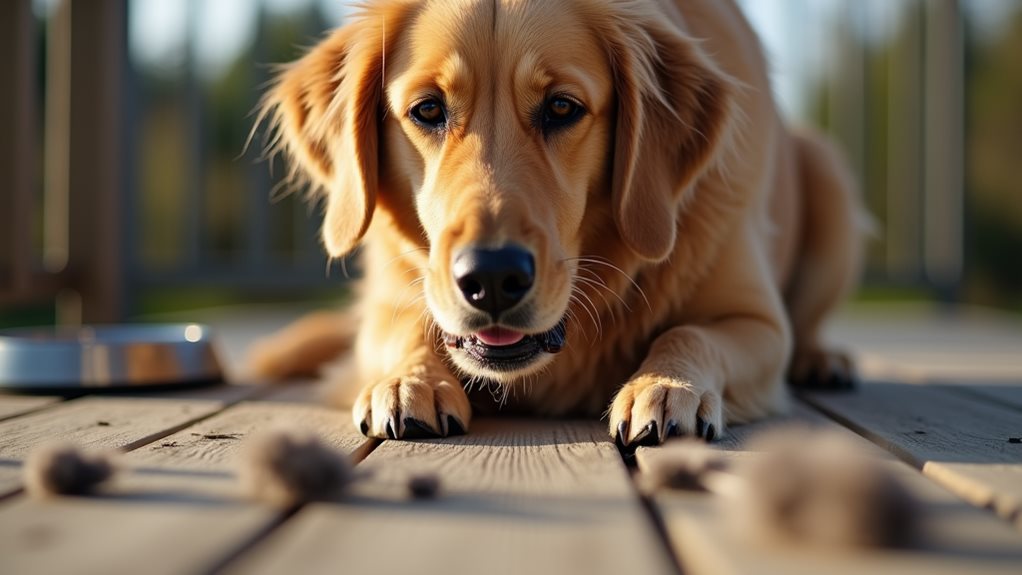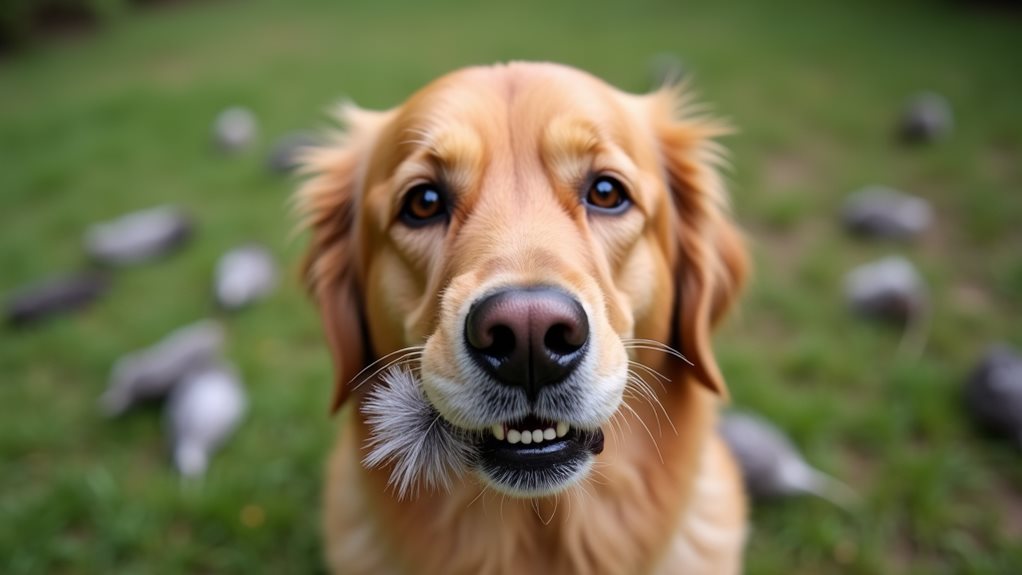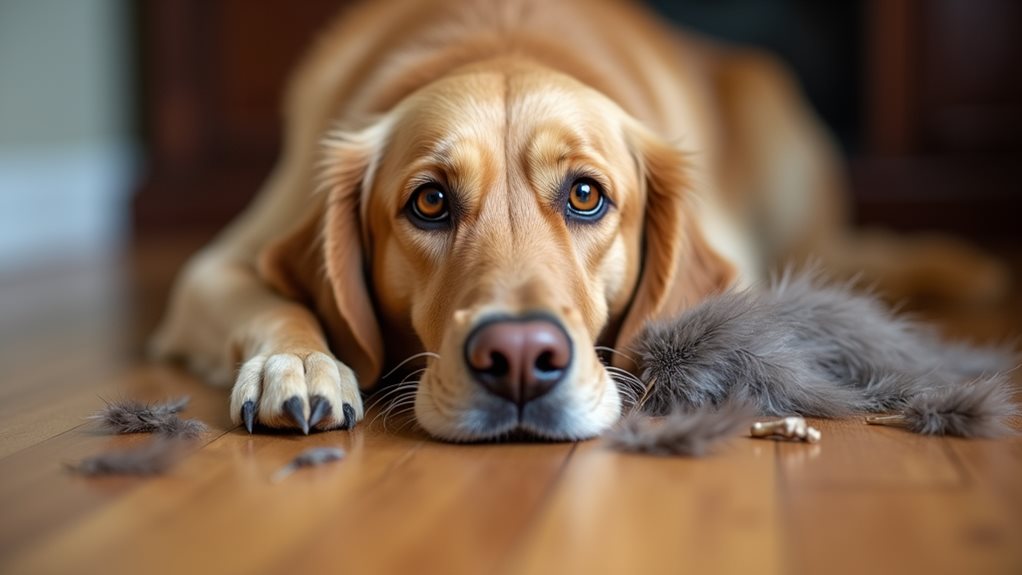If your dog has eaten a dead bird, first remove any remaining pieces from their mouth and prevent access to other potential hazards. Monitor your pet closely for the next 72 hours for signs of illness, including vomiting, diarrhea, lethargy, or fever, as dead birds can carry harmful bacteria like Salmonella. Contact your veterinarian immediately if these symptoms appear or if your dog shows respiratory distress or sudden weakness. While many dogs recover without complications, proper prevention through leash control and the "leave it" command can help avoid future incidents. Understanding the full range of risks and treatment options will better prepare you for managing this situation.
TLDR
- Remove any remaining bird parts from your dog's mouth immediately and prevent access to additional dead birds.
- Monitor your dog closely for the next 72 hours for signs of vomiting, diarrhea, lethargy, or fever.
- Contact your veterinarian right away if your dog shows any concerning symptoms or behavioral changes.
- Feed a bland diet of boiled chicken and rice if recommended by your vet during the monitoring period.
- Keep your dog leashed during walks and train the "leave it" command to prevent future incidents.
First Steps to Take

If your dog has eaten a dead bird, taking immediate action is essential to prevent potential health complications.
Quickly stop your dog from consuming more of the bird, and carefully remove any remaining pieces from their mouth. Additionally, monitor your dog for signs of digestive upset that may arise from consuming contaminated or decaying matter.
You'll need to prevent access to other dead birds nearby while noting important details about the incident, including the bird's type and condition.
Be sure to keep your dog under close supervision following the incident to monitor their behavior and health.
Health Risks to Watch For
After taking immediate action, you'll need to monitor your dog closely for several health risks that can develop from eating a dead bird.
The severity of symptoms can vary greatly depending on your dog's size and the type of toxin present. Dogs that consume birds may also be at risk of harmful bacteria that can lead to serious infections.
Watch for signs of gastroenteritis, including vomiting and diarrhea, which typically appear within 12 to 72 hours.
More serious concerns include Salmonella infection, exposure to toxins, and potential parasitic diseases, which can cause fever, lethargy, and dehydration.
When to Call Your Veterinarian

Knowing when to call your veterinarian is essential after your dog has eaten a dead bird.
Contact them immediately if your dog shows signs of lethargy, vomiting, diarrhea, or respiratory distress. It's important to be aware that bacterial infections can arise from consuming decaying flesh, which can pose additional health risks.
You should also call if you notice any sudden weakness, paralysis, or prolonged loss of appetite.
Don't hesitate to reach out if you're unsure about the bird's condition or potential exposure to toxins. While the overall risk is typically low, watch for signs of Salmonella infection which requires prompt veterinary attention.
Prevention Moving Forward
Prevention is the best approach to protect your dog from the dangers of eating dead birds.
Train your dog with the "leave it" command using positive reinforcement, and always keep them on a leash in areas where dead animals might be present. Additionally, be aware that dead birds can carry potential health risks that may endanger your dog's well-being.
Consider using a basket muzzle during walks, and regularly scan your yard for potential hazards while maintaining current vaccinations. Regular deworming treatments are essential since dead animals can harbor parasitic infections that pose serious health risks.
Treatment Options and Recovery

If your dog has eaten a dead bird, prompt action and careful monitoring are essential for their recovery.
Contact your veterinarian immediately while watching for symptoms like diarrhea, vomiting, or lethargy.
Switch to a bland diet of boiled chicken and rice, but only if your vet approves.
Seek immediate medical care if your pet shows neurological symptoms, has bloody stool, or appears seriously ill.
And Finally
While it's alarming when your dog eats a dead bird, you'll usually see a positive outcome with prompt action and proper monitoring. Stay vigilant for symptoms like vomiting or lethargy, and don't hesitate to contact your vet if concerning signs develop. By implementing preventive measures, such as reliable recall training and securing your yard against wildlife, you'll reduce the chances of future incidents and keep your pet safe.